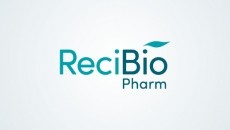Implantable/injectable drug delivery market set to hit $12.6bn by 2010
revenues of $9.8bn (€7.4bn) worldwide in 2006 but is set to
continue growing, driven by growing demand for novel drug delivery
technologies.
The market for implantable/injectable drug delivery is forecast to reach $12.6bn by 2010, according to a new report published Kalorama Information. According to the research, the market for these drug delivery techniques is due to increase at a rapid pace over the next few years, with significant revenue gains predicted for needle-free delivery of injectable medications, especially vaccines. The needle-free delivery sector is set to grow to around $3bn by 2010, driven forward by an expanding drug delivery marketplace, growing consumer awareness, and increasing focus on healthcare worker safety. Implantable, sustained-release and targeted-injection drug delivery systems dominate the market, with $7.3bn generated in manufacturer revenues in 2006. Newly developed biological therapies, such as blood modifiers and insulin products, will push growth in this sector says the report, with sales predicted to reach $9bn by 2010. Report author Mary Anne Crandall highlights several factors influencing growth of the implantable/injectable drug delivery market: "One of the most significant influences is the growth in the elderly population," says Crandall. "Ease of administration, frequency of administration, safety, and cost are of major importance to all consumers especially the elderly population. Novel drug delivery methods help to meet those needs for efficacy, safety, patient compliance, and ease of use." Another feature driving the market is the realisation by large pharmas that novel delivery methods can significantly extend the period of exclusivity of drug products close to patent expiration, providing them a competitive edge in the industry. "Patent issues are a major driver of the industry," writes Crandall, "This leads to the development of collaborations and acquisitions between big pharma companies and drug delivery companies, such as with the recent acquisition of PowerMed by Pfizer in October 2006." The uniqueness of a product provided by a novel delivery technique is also of key importance in the pharmaceuticals industry, according to the report, especially in the generics sector where the drug products are all essentially bioequivalent. In the report, Crandall draws attention to the increased competition in the market over the last 10 years, represented by companies such as ALZA, SkyePharma, PowerMed, Bioject and Alkermes. However, to sustain the growth of implantable, sustained release and targeted delivery market segments, Crandall claims that companies will have to become more involved in the burgeoning biotech drug market. "In this arena there is increased risk of clinical failure and loss of substantial investment depending on when the companies get involved in the development process…Some companies may elect to follow Alkermes' lead by pursuing acquisitions designed to broaden their technology base." Progress in the field of drug delivery is advancing apace, with new generations of delivery systems allowing the effect of drugs to be prolonged and half-life shortened. However, according to Kalorama, "the line between drug delivery and drug substance will become more elusive in the near future, as researchers work to improve drug properties through drug design and drug modelling. Consequently, in the next decade, drug delivery technologies will be a focal point of competition within the pharmaceutical industry." In this way, novel delivery techniques could mean the difference between a product's success and a struggle in the marketplace, as well as opening up potential for a new generation of targeted treatments which can more effectively exploit a drug's clinical properties. More information about the Kalorama report, "Drug Delivery Markets, Second Edition, Vol.2: Implantable/Injectable Delivery Systems" can be found here.








